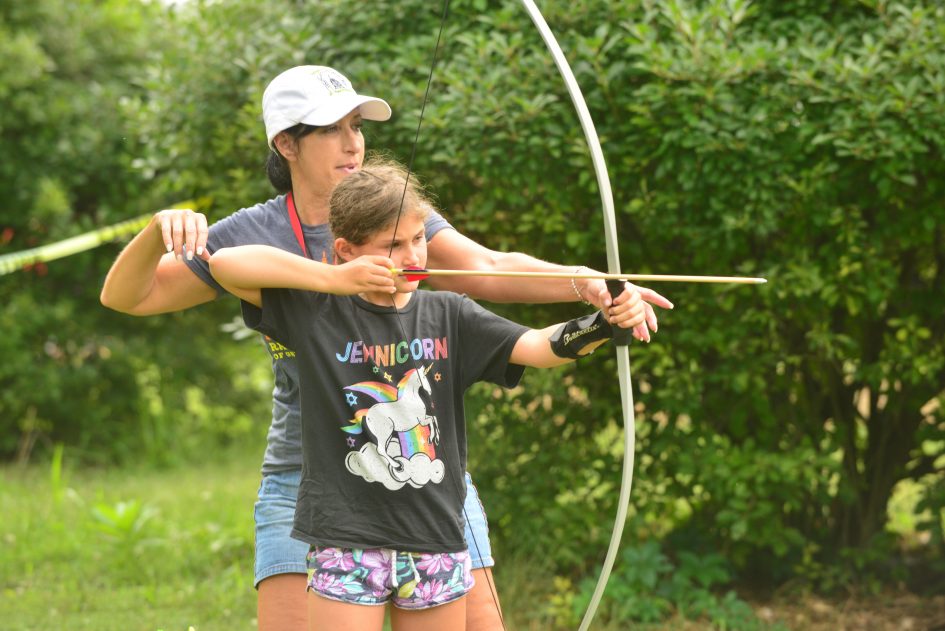Strength, Transition, and Virtual Communities

Shalom Chaverim,
This past week, we read the parashot Veyakhel and Pekudei. The double parsha begins with Moshe explaining to the people of Israel the rules of Shabbat. He details the prohibitions to kindle fire and do work, and even explains the mortal punishment that could come from not abiding by the law. We continue to read about the specific steps the Israelites took to build the Mishkan. Much of the parashot is focused around the intricacies of design and construction of the Tabernacle. We read about the size and scale of every specific detail, from the altar for sacrifice, to more decorative pieces like the menorah and wall panels. It is clear that in the case of the Mishkan, the whole is far greater than the sum of its parts.
At the end of Veyakhel-Pekudei, we finish the book of Shemot (Exodus). Traditionally, when we finish a book in the Torah, we chant Hazak, Hazak, Venit-chazek. This can be translated as “Be strong, be strong, and we will take strength from you.”
Before the onset of COVID-19, I was supposed to be out in Palmer this weekend for our Tzad Bet Reunion. I was to be joined by over 120 chanichim (campers) and tzevet (staff) from Shoafim – Nivonim. I was going to take the opportunity of ending Exodus and starting Leviticus as a symbol for our chanichim (campers) of the kayitz (summer) to come. For our Shoafimers, Tzad Bet Reunion marks their first time on the older tzad of camp. They end the chapter of their years on Tzad Aleph, and begin the chapter of their years on Tzad Bet. For our Nivonim 2019 chanichim, the Reunion is the close of their chapter as chanichim (campers) and the beginning of their chapter on tzevet (staff). Yet, like our whole world, I find myself in a different situation this Shabbat.
This Shabbat is also Shabbat HaChodesh, the last of four special Shabbatot before Pesach. In the Maftir aliyah (Shemot 12:1 – 20) we read about the story and laws of Pesach. Traditionally, this excerpt serves as a wakeup call. It reminds us of the proximity of Pesach, and starts the countdown in our heads (assuming it didn’t happen already!). We think about our plan to kasher our kitchen. We consider how we might adjust this year’s seder menu. And we look forward to the seder, or order, that Pesach brings to our lives. However, this year is different. This Maftir aliyah brings us uncertainty as we consider our plans for this year’s celebration. We consider who will be around our table and who will make up our community. There is no doubt this bring us all a great deal of uncertainty.
Just as the Israelites came together and built the Mishkan, I am confident that we too can build innovative and accessible Jewish communities in our uncertain time. In Abraham Joshua Heschel’s book “The Sabbath” he explains:
“Judaism is a religion of time aiming at the sanctification of time … Judaism teaches us to be attached to holiness in time, to be attached to sacred events, to learn how to consecrate sanctuaries that emerge from the magnificent stream of a year.”
To me, Heschel’s words ring more true today than they ever have before. Over the past few weeks, we have seen tremendous strides throughout the Jewish world to build a wide array of virtual programs and activities. Together with my colleagues, we at Camp Ramah New England and the Ramah DC Day Camp have built Ramah M’Rachok – our remote Ramah community geared towards bringing the Ruach of Ramah into your home. It’s been a true highlight to have so many of you join us for Karaoke T’fillot, Rikud, and all the programs we have offered so far. A whole list of offerings can be found on our Ramah M’Rachok blog. And, as always, please be in touch with ideas of how we can bring programs, experiences and joy to a screen near you.
Shabbat Shalom,
Simon Luxemburg